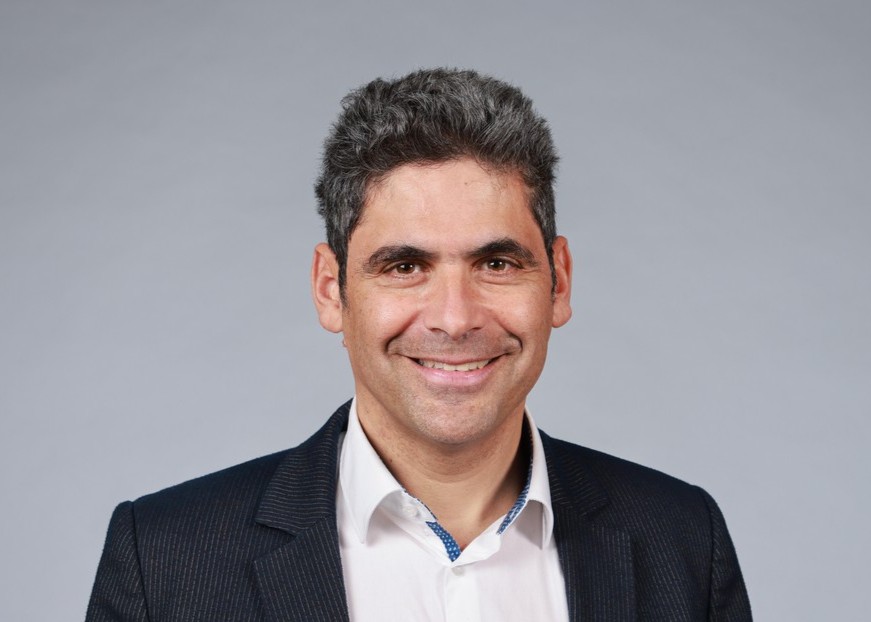Africa News
Moroccan scientist honoured for impact on computing
Rachid Guerraoui has received a major international award for contributions to distributed computing.
For his influential contributions to distributed computing and his work to advance computer science in Africa, Rachid Guerraoui will receive a major international accolade, the Luiz André Barroso Award, from the Association for Computing Machinery (ACM).
Guerraoui’s research has shaped how distributed systems handle transactions, agreement protocols, and decentralised communication. He has supported computing education across Africa through initiatives like the Swiss Federal Institute of Technology in Lausanne’s (EPFL) Excellence in Africa programme and the Moroccan Netys conference – helping to develop local talent and foster international collaboration.
Guerraoui, who was born in Morocco, is a professor in the School of Computer and Communication Sciences at the EPFL. He is the director of the Distributed Computing Laboratory.
The Luiz André Barroso Award recognises researchers from historically underrepresented communities who have made fundamental contributions to computer science. Named after the Brazilian computer engineer who pioneered the design of the modern data centre, the award celebrates innovation and inclusion. Barroso, who grew up in a diverse community, is a strong supporter of equal opportunity.
Technical contributions
Guerraoui has made significant contributions that have shaped the landscape of distributed computing. Distributed computing is the process of making multiple computers in different locations work together to solve a common problem.
A common thread that runs through Guerraoui’s work is providing principled theoretical and practical foundations for distributed computing mechanisms, such as transactional memory, agreement protocols, and asynchronous information dissemination algorithms.
His work on e-transaction and opacity concepts has provided new insights into managing transactions in concurrent environments. By establishing a theory of Transaction Contention Management and developing STMBench7, he has provided tools and frameworks for understanding and optimising transaction performance.
Guerraoui has proposed effective solutions to distributed agreement problems, which he applied to the realm of cryptocurrency. He has demonstrated how to build scalable asynchronous abstractions that can support secure and decentralised digital currencies.
His work on asynchronous dissemination protocols has paved the way for fully decentralised publish-subscribe systems, enabling efficient and reliable communication in distributed environments.
Guerraoui has ventured into the field of Byzantine Machine Learning, which seeks to implement large-scale machine learning algorithms in the presence of machine failures. This work has opened new avenues for research at the intersection of machine learning and distributed computing.
Computing in Africa
Guerraoui has been a passionate advocate for computing education in Africa. He has been committed to fostering academic excellence on the African continent.
By co-initiating the EPFL’s Excellence in Africa program, for example, Guerraoui has promoted the development of junior faculty and graduate students, providing them with opportunities to excel in their research and careers.
The program has benefited researchers from Rwanda, Ivory Coast, Ghana, Cameroon, South Africa, Tanzania, Tunisia, and Morocco. Guerraoui’s involvement in the creation of the UM6P College of Computing in Morocco has further expanded access to high-quality computer science education in the region.
Guerraoui has played a key role in fostering collaboration and exchange among African computer science researchers through the Netys conference in Morocco, which he co-initiated. Netys is an exchange forum for African computing researchers who cannot easily travel to the US and Europe because of visas and financial issues.
“As an international leader in distributed computing, Rachid Guerraoui continues Luiz’s legacy of transformative technical impact,” says Jeff Dean, chief scientist of Google.
“During his many years at Google, Luiz pioneered the design of the modern data centre. He was also a dedicated mentor to the next generation of computer scientists, and I know Luiz would also wholeheartedly endorse Guerraoui’s work in helping educate computing professionals across Africa. Geurraoui is the ideal person to receive this award.”
Biographical background
Rachid Guerraoui is head of the Advisory Board of the UM6P (University Mohammed 6 Polytechnic) College of Computing in Morocco. Guerraoui has received an MSc in Computer Science from Sorbonne University, and a PhD in Computer Science from Orsay University.
His honours include the Dahl-Nygaard Award (2024), a 10-Year Most Influential Paper Award, and best paper awards from several conferences. Guerraoui was named an ACM Fellow in 2012 for contributions to the theory and practice of reliable distributed computing and Professor of College de France in 2018.
Rachid Guerraoui will receive the Luiz André Barroso Award at the annual ACM Awards Banquet, taking place at the Palace Hotel in San Francisco on 14 June 2025.
















